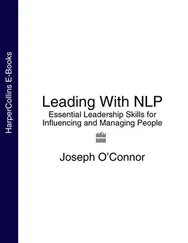John Gray - Children Are from Heaven - Positive Parenting Skills for Raising Cooperative, Confident, and Compassionate Children
Здесь есть возможность читать онлайн «John Gray - Children Are from Heaven - Positive Parenting Skills for Raising Cooperative, Confident, and Compassionate Children» весь текст электронной книги совершенно бесплатно (целиком полную версию без сокращений). В некоторых случаях можно слушать аудио, скачать через торрент в формате fb2 и присутствует краткое содержание. Год выпуска: 1999, ISBN: 1999, Издательство: HarperCollins e-books, Жанр: psy_childs, sci_pedagogy, Психология, на английском языке. Описание произведения, (предисловие) а так же отзывы посетителей доступны на портале библиотеки ЛибКат.
- Название:Children Are from Heaven: Positive Parenting Skills for Raising Cooperative, Confident, and Compassionate Children
- Автор:
- Издательство:HarperCollins e-books
- Жанр:
- Год:1999
- ISBN:978-0-06-133886-1
- Рейтинг книги:4 / 5. Голосов: 1
-
Избранное:Добавить в избранное
- Отзывы:
-
Ваша оценка:
- 80
- 1
- 2
- 3
- 4
- 5
Children Are from Heaven: Positive Parenting Skills for Raising Cooperative, Confident, and Compassionate Children: краткое содержание, описание и аннотация
Предлагаем к чтению аннотацию, описание, краткое содержание или предисловие (зависит от того, что написал сам автор книги «Children Are from Heaven: Positive Parenting Skills for Raising Cooperative, Confident, and Compassionate Children»). Если вы не нашли необходимую информацию о книге — напишите в комментариях, мы постараемся отыскать её.
Children Are from Heaven: Positive Parenting Skills for Raising Cooperative, Confident, and Compassionate Children — читать онлайн бесплатно полную книгу (весь текст) целиком
Ниже представлен текст книги, разбитый по страницам. Система сохранения места последней прочитанной страницы, позволяет с удобством читать онлайн бесплатно книгу «Children Are from Heaven: Positive Parenting Skills for Raising Cooperative, Confident, and Compassionate Children», без необходимости каждый раз заново искать на чём Вы остановились. Поставьте закладку, и сможете в любой момент перейти на страницу, на которой закончили чтение.
Интервал:
Закладка:
When the lines of communication are broken, your teen is at risk of being influenced by peers who are clearly out of control or not a healthy influence. If some teen is being mean to your teen, but your child doesn’t want you to call their parents, in most cases it is best to respect your teen’s wishes. The teen knows, and you should know, that if you violate her trust and use the information she shares in a way she feels is unfair or unsupportive of her, she will simply stop sharing.
SENDING YOUR TEEN AWAY
Sometimes a spoiled teenager needs more than time in his room. Sometimes time spent with supervision in a developing country, staying with a favorite aunt, uncle, or grandparent, or in the woods with a guide will help him to regain his true self and his need for someone else to be the boss. Getting away from the family on supervised activities that are challenging for a teen can dramatically improve his attitude.
By feeling out of control and depending on someone else, a teenager can come back to feeling her basic need for guidance and support. A button gets pushed again that awakens in her a need for her parents’ love and her desire to cooperate and please them.
Having an after-school job outside of the home, taking private lessons, or being on a team are great opportunities for a teen to feel his need to be taught, directed, and supervised.
Teens need the guidance of someone outside the family. If they are not getting the guidance of a boss at work, a teacher, or a coach they are more at risk of following a misdirected teen. To maintain control at home, make sure your teen is getting supervision and direction outside the home as well.
INSTEAD OF “DON’T” USE “I WANT”
Before children have developed logical thought, around the age of nine, it is counterproductive to use the word “don’t.”
When you say “don’t run,” children will form an inner picture of themselves running. Instead of slowing down they have a greater urge to run. Children learn through pictures. When children picture something in their mind’s eye, action is soon to follow. It is as if they don’t even hear the word “don’t.”
When you say “don’t,” you actually create a
greater urge in children to do the very thing
you are asking them not to do.
Right now, try not to think about the color blue. By trying not to think about blue, you are forced to think about it.
When you tell a child, “Don’t hit your brother,” he is now seeing himself hit his brother. Using the word “don’t” actually makes it more difficult for the child to cooperate.
Telling children “Don’t play with your food” creates in their mind’s eye a picture of themselves playing with their food and actually increases their impulse and desire to play with their food. When given the opportunity, this urge comes up later and they begin mashing things up with their food.
Quite often a parent will ask a child something like this, “I told you don’t throw balls in the house. Why did you throw that ball in the house?” In this case, a child’s honest answer is, “I don’t know.” Sometimes they really don’t know why they threw the ball.
Many times children are not thinking,
they are just acting out the picture in their
mind’s eye.
With this insight, parents can give up the word “don’t.”
If they forget and a “don’t” pops out, then a parent can easily rectify the message. By rephrasing their request or command in the positive, the intended picture will get created. If you happen to say “don’t run,” then adjust the “don’t” and say, “I want you to slow down and walk.”
ASKING YOUR CHILDREN WHAT THEY THINK
Around the age of nine, children begin to develop the capacity for logical thinking. It is appropriate for parents to begin asking their children what they think. If a child asks for ice cream in the afternoon, the parent can say: “What do you think? Is that a good idea?”
Besides asking children more about what they think they should do, parents can also begin explaining the reasons why they want their children to do things. Before age nine, children really can’t understand logical thought. Saying “I want you to go to bed now” is best for kids up to age nine, and then a parent can say, “I want you to go to bed by nine o’clock so that you will be well rested in the morning.”
These are some examples of requests for children nine years old and older:
Would you please be quiet? Right now, I want you to listen because then I can explain what we are going to do.
Would you please stop hitting your sister? I want you to use your words. Hitting hurts her and makes her not want to play with you.
Would you please help me? I want you to bring your plate over to the sink, because doing dishes is a big job and it is so much easier with your help.
Would you please clean up this mess? I want you put your toys away, because when you leave them out someone could trip on them. The room looks so much nicer when you put your things away.
Would you please straighten up your room? I want you to put your things away. When you put things away, then you know where to find them again.
If a child under the age of nine asks “why” he or she should do things, then it is fine to answer with some reasons, but not if the child is resistant. Parents should keep in mind that children younger than nine really don’t have the ability to comprehend or put into practice logic or reason.
A parent should motivate the behavior of children under the age of nine without reasons to back up the request. When children resist direction, the only reason a child should cooperate is because he is the child, you are the boss, and you want him to cooperate. Remember that, deep inside every child, his prime directive is to cooperate with your will and wish.
THE CHALLENGE OF PARENTING
Parenting has always been a challenge, but positive parenting is an even greater challenge. Although it takes extra time and effort in the beginning to learn, it is well worth it. In the long run, not only does parenting become easier, but your children benefit as well. As your children move through their different stages of growth, you will be prepared at each turn.
As you apply the new skills of positive parenting, you will occasionally trip and fall, but everyone does. Soon you will feel confident and at peace, because you will know you are giving your children what they need. You cannot change their inner destiny or take away their unique problems, but you can give them the required parental support to face adversity and achieve increasing success.
As with any new skill, there is a learning curve. Before it gets easier, it becomes more difficult. As soon as you think you have it working, there is a setback, and you don’t know what to do. When your approach doesn’t seem to be working, or you don’t know what to do, that is the time to review Children Are from Heaven . In a short time, you will rediscover what you forgot. By once again applying the five skills of positive parenting, you will be back on track.
Even if you do everything right, remember that children are not perfect. They need to make mistakes and experience setbacks. They need problems and challenges in life to forge their unique character and set of strengths. Although your support is greatly needed, they come into this world with what they need to learn their lessons and do what they are here to do.
Just as you can’t expect your children to be perfect, don’t expect yourself to be perfect either. Making mistakes is a part of growing up, and it is a part of successful parenting.
Читать дальшеИнтервал:
Закладка:
Похожие книги на «Children Are from Heaven: Positive Parenting Skills for Raising Cooperative, Confident, and Compassionate Children»
Представляем Вашему вниманию похожие книги на «Children Are from Heaven: Positive Parenting Skills for Raising Cooperative, Confident, and Compassionate Children» списком для выбора. Мы отобрали схожую по названию и смыслу литературу в надежде предоставить читателям больше вариантов отыскать новые, интересные, ещё непрочитанные произведения.
Обсуждение, отзывы о книге «Children Are from Heaven: Positive Parenting Skills for Raising Cooperative, Confident, and Compassionate Children» и просто собственные мнения читателей. Оставьте ваши комментарии, напишите, что Вы думаете о произведении, его смысле или главных героях. Укажите что конкретно понравилось, а что нет, и почему Вы так считаете.












